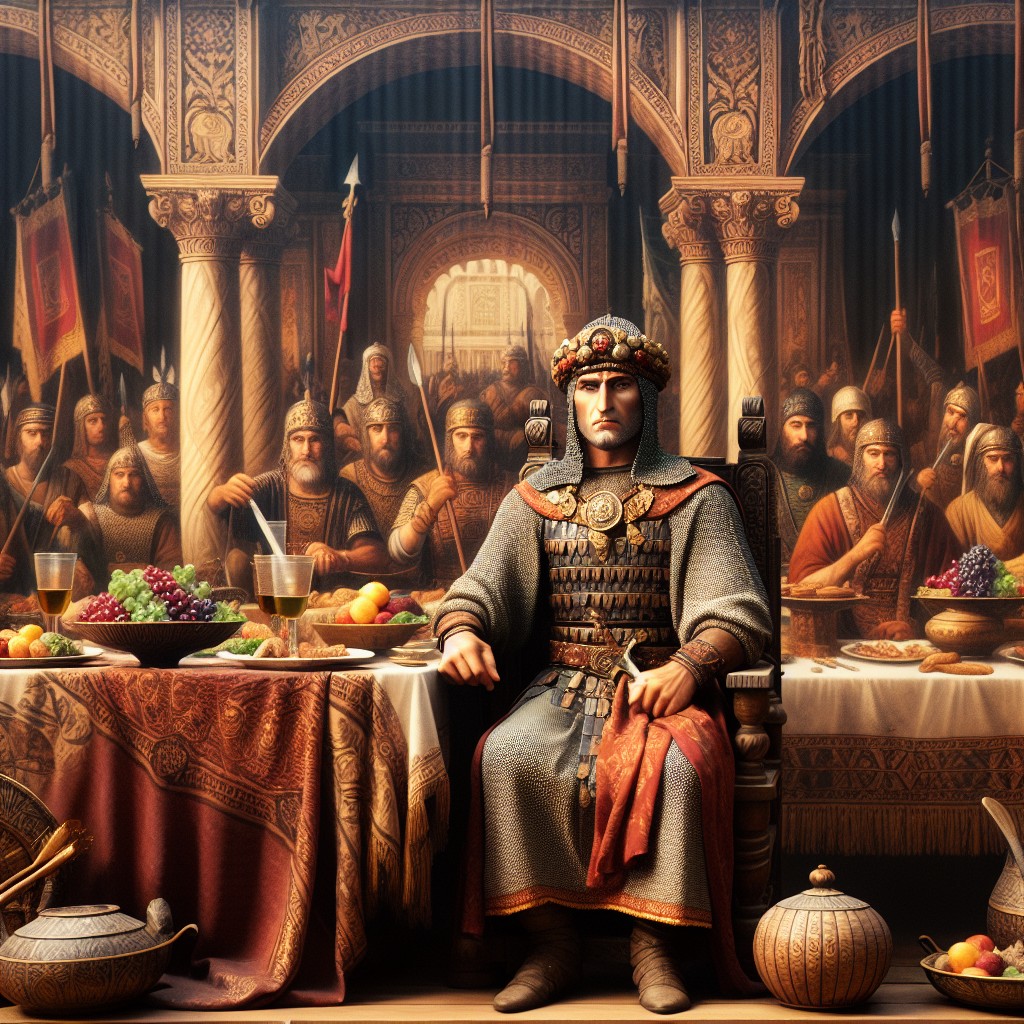Attila: Scourge of God or Pure Soul?
The Hunnic king in the historical epic poem Waltharius

Attila seated at a banquet in his palace - AI-generated image.
“Scourge of God,” “Rod of Divine Wrath,” and countless other epithets—over the centuries, unflattering remarks about Attila have abounded, remaining deeply ingrained in popular imagination even today. However, this is not the image of the Hun king that emerges from the Waltharius, a fascinating yet elusive medieval Latin epic-historical poem. The authorship and dating of this work remain debated, but the traditional view attributes its composition to Ekkehard I of Saint Gall (10th century).
In summary, the plot follows the adventures of Walther of Aquitaine and his beloved Hiltgund, who are held hostage at Attila’s court. Despite being treated as family by the royal household, they long for freedom and decide to escape with the crown’s treasure. After numerous ordeals, they are intercepted by the greedy Gunther, king of the Franks, leading Walther to engage in twelve duels—one of which pits him against his former childhood companion and friend, Hagen. However, the two ultimately reconcile, sealing the story with a happy ending.
From a historical perspective, the portrayal of Attila in this poem is particularly intriguing. Unlike the ruthless figure often depicted in historical tradition, the Hun king appears as a wise, loyal, and fully “civilized” leader. One striking example is the lavish banquet he hosts for Walther, where he sits on a throne woven with byssus and purple, while seating arrangements follow the courtly hierarchy of nobility.
Perhaps most surprising is the depiction of Attila’s reaction upon discovering Walther and Hiltgund’s escape. The king is devastated—unable to eat or drink, he finds no solace even in sleep, tossing and turning in bed. The poet even describes him as amens, delirious. Through a subtle intertextual reference, Attila is implicitly compared to none other than Dido from Book IV of Virgil’s Aeneid, the ultimate symbol of passionate despair. This image of Attila as a heartbroken, sensitive lover stands in stark contrast to the fearsome warlord preserved in mainstream historical tradition.
Armando Bisanti, L’epica latina altomedievale e il Waltharius, European Polygraphic Institute, Palermo 2010.
Marco Vittorio Pezzolo
2025-03-20
Salvatore Ciccarello
